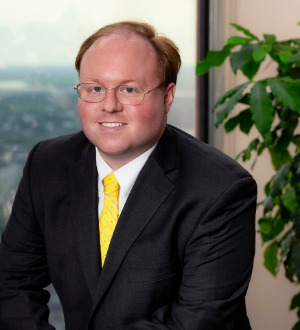Back in 2020, as part of Civil Justice Reforms, an attempt was made to remove a Louisiana judicial doctrine in personal injury cases: the Housley Presumption. That attempted reform failed upon the veto of Louisiana’s then-governor, John Bel Edwards. A new attempt is being made to do away with the HousleyPresumption via Louisiana House Bill No. 24 by State Representative Michael Melerine of Shreveport. Below is a brief discussion of the Housley Presumption and how this legislation aims to change it.
THE HOUSLEY PRESUMPTION
The Housley Presumption is named for the Louisiana Supreme Court case which “created” the presumption. Housley v. Cerise, 579 So.2d 973 (La. 1991), revolved around damage claims from a fall in a rented residence, which allegedly caused a pregnant mother’s “water” to prematurely break, leading to an emergency c-section. Plaintiff provided evidence consisting of medical expert testimony, evidence of health prior to the fall, and evidence of the “temporal relationship” between the fall and the “water” breaking.
Relying on a prior case, the Louisiana Supreme Court stated:
[A] claimant’s disability is presumed to have resulted from an accident, if before the accident the injured person was in good health, but commencing with the accident the symptoms of the disabling condition appear and continuously manifest themselves afterwards, providing that the medical evidence shows there to be a reasonable possibility of causal connection between the accident and the disabling condition.
Id. at 980.
Therefore, under Louisiana law, as long as medical evidence demonstrates a “reasonable possibility” of a connection between an accident and a medical condition, there will be a presumption that the accident caused the condition if the symptoms allegedly begin with the accident.
This presumption is, however, rebuttable. Defendants can always offer evidence that some other incident or event caused the injuries—such as a subsequent accident, another medical condition, etc. The presumption also presupposes some proof of relative good health vis-à-vis the alleged accident symptoms. If the Plaintiff was not in good health, the presumptions should not apply. See, e.g., Ladner v. Government Employees’ Ins. Co., 992 So.2d 1098 (La. App. 4 Cir. 2008) (stating that the presumption would not apply when records did not demonstrate the Plaintiff’s prior good health and, in fact, demonstrated she had been previously treated for back problems, syncope, two heart attacks, two strokes, and other complaints prior to the accident).
NEW ATTEMPT TO OVERRULE THE PRESUMPTION
In Louisiana’s 2024 Regular Legislative Session, State Representative Melerine introduced House Bill 24, which would legislatively overrule the HousleyPresumption. At the time of this writing, HB 24 would create a new article in Louisiana’s Civil Code, Art. 2315.12, stating:
Art. 2315.12. Presumption of causation of injuries
The lack of a prior history of an illness, injury, or condition shall not create a presumption that an illness, injury, or condition was caused by the act that is the subject of the claim for personal injury. The provisions of this Article shall not apply to personal injury claims brought pursuant to the Louisiana Workers’ Compensation Law.
This new code article would require a Plaintiff to maintain his or her full burden of proof on causation rather than allowing the Plaintiff to rely on the prior judicially-created presumption on causation. The text of the bill would further make this law prospective only, and “shall not apply to causes of action filed prior to the effective date of this Act” [emphasis added]. If the matter passes the legislature, we might expect a few cases by Plaintiff with pre-existing conditions to be filed with the courts in a hurry.
This bill passed Louisiana’s House of Representatives on March 21, 2024, by a vote of 75-25-5. It will next go to Louisiana’s Senate for review and potential approval. There is still plenty of time for amendments, which would need to pass both houses.
In the last attempt to overrule Housley in 2020, the bill passed both houses of Louisiana’s legislature, only being defeated on veto. While the current legislation may be amended, we expect it will again pass both houses in some form. At that point, it will be up to Louisiana’s current governor, Jeff Landry, as to whether he will sign the legislation, let it pass into law, or exercise his right of veto.
We will follow this legislation and report if it, in fact, makes a welcome change to uphold a Plaintiff’s burden of proof by a preponderance of the evidence on accident-injury causation.
EmailFacebookLinkedIn















